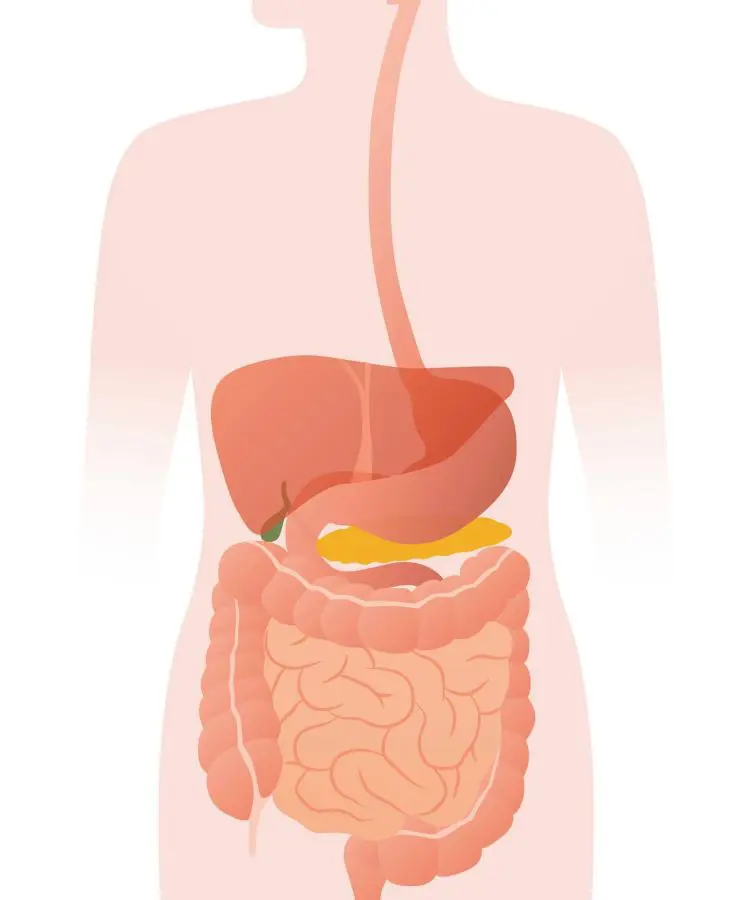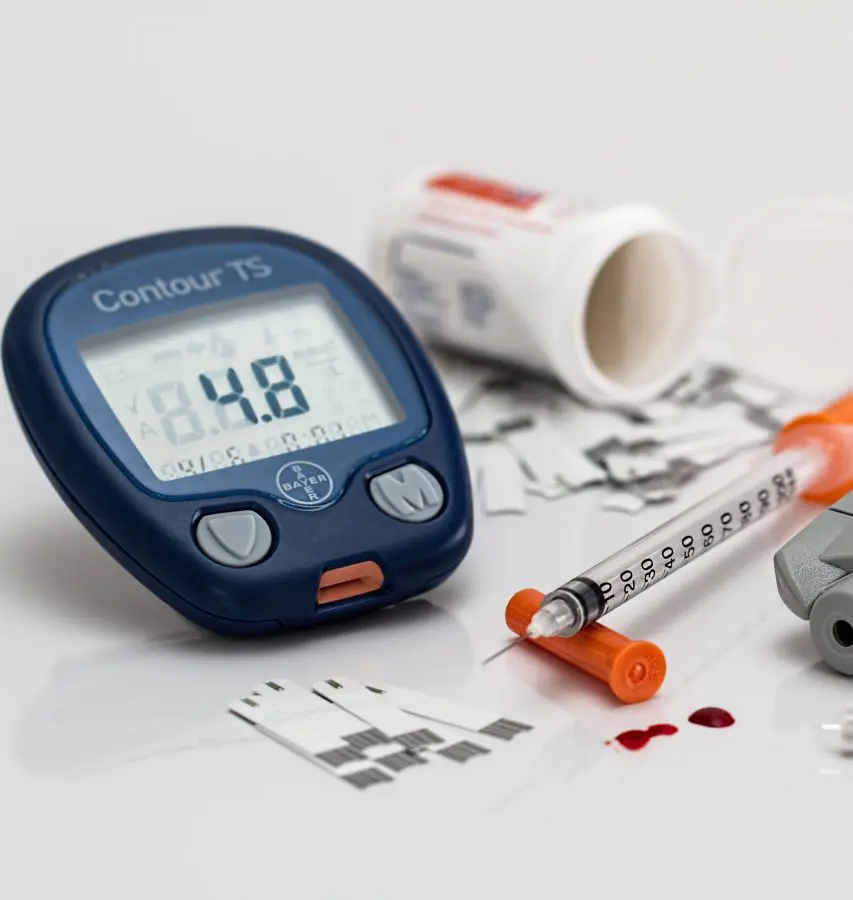17 Cream Cheese Health Benefits And Nutritional Facts

Cream cheese, a beloved dairy product known for its creamy texture and mild flavor, is a versatile ingredient in many culinary creations. Beyond its delicious taste, cream cheese nutrition offers a range of benefits.
It is rich in fats, particularly saturated fats, and contains protein, calcium, and vitamins A and B2 (riboflavin). This article explores the 17 health benefits and nutritional profiles, shedding light on how this popular cheese can be a valuable addition to a balanced diet.
What is Cream Cheese?
Cream cheese is a soft, mild-tasting fresh cheese made from milk and cream. It has a smooth and spreadable texture, with a rich, tangy taste. It is available in various forms, including regular, whipped, flavored varieties, reduced-fat, and non-dairy alternatives.
Cream cheese is commonly used in American cuisine, especially cheesecakes, bagels, and dips. Its shelf life typically ranges from two to four weeks when refrigerated.
It should be kept tightly sealed and stored at a consistent, cold temperature to extend its shelf life. Freezing is also an option, although it may slightly alter the texture.
Benefits of Cream Cheese
Yes, cheese cream is healthy when consumed in moderation. It is rich in essential nutrients like calcium, which is important for bone health, and protein, which supports muscle maintenance and repair. It also contains vitamins A and B2 (riboflavin), contributing to good vision and energy production.
However, one should be mindful of the calories and saturated fat in cream cheese to avoid potential negative impacts on cardiovascular health. Beside that, this tasty treat is good for you with the following health benefits:
1. Enhances Gut Health

Some cream cheese brands have probiotic bacteria like Lactobacillus chungangensis, which boost gut health by raising beneficial short-chain fatty acids and preventing gut inflammation. The probiotics and antioxidants in cream cheese can reduce inflammation, helping to prevent digestive issues.
To get the most gut health benefits, choose cream cheese with added probiotics. Combining cream cheese with high-fiber foods like whole-grain crackers or vegetables can provide additional gut-friendly nutrients.
2. High in Vitamin A
Cream cheese is an excellent source of vitamin A, providing 87 mg of vitamin A, or 10% of the daily value per ounce (28 grams). Vitamin A is a fat-soluble vitamin that is essential for vision health, immune function, and skin health.
This fat-soluble vitamin is especially beneficial for eye health, as it helps maintain the cornea and supports night vision. Vitamin A also plays a crucial role in immune system function, helping to protect the body against infections and diseases.
3. Contains Antioxidant Properties
Cream cheese contains antioxidant properties that help protect against oxidative stress and cell damage. The antioxidants present in cream cheese, such as carotenoids and plant phenols, inhibit the growth of cancer cells and protect against various chronic diseases like allergies, diabetes, and cardiovascular disease.
These antioxidants also enhance overall health and well-being by reducing inflammation and promoting cell regeneration. Additionally, the antioxidant properties of cream cheese can improve the oxidative stability of the cheese, making it a more durable and long-lasting product.
4. Cheese Cream is Low in Lactose

Cream cheese is a great choice for people with lactose intolerance because it contains very little lactose, the sugar found in dairy products that can cause digestive issues like diarrhea and bloating. With less than 2 grams of lactose per ounce, cream cheese is usually well tolerated by those with lactose intolerance.
Some brands even make lactose-free versions by adding an enzyme called lactase, which helps break down lactose, making cream cheese even easier to digest for people with lactose intolerance.
5. Possibly Prevents Cancer
Cream cheese, although a dairy product, has been linked to possible cancer-preventive properties. While research on the relationship between dairy products and cancer risk isn't conclusive, some findings from the Cancer Council indicate that certain elements in dairy foods, like milk and cheese, might offer protection against cancer.
For example, milk has been associated with lower risks of colorectal and bladder cancer, whereas diets rich in calcium, found in cheese, might increase the likelihood of prostate cancer. Therefore, including cream cheese in a balanced diet alongside other dairy products might potentially help prevent cancer due to its nutrients like calcium and protein.
6. Best Dietary Source for Calcium
Cheese cream is an excellent dietary source of calcium, making it a valuable addition to a balanced diet. Some of the healthiest cheese cream are: parmesan, mozzarella, Swiss, goat cheese, and cheddar cheese. Hard cheeses, like Parmesan, are rich in calcium, providing up to 300 milligrams per 30 grams of cheese.
This high calcium content makes cheese cream an ideal choice for individuals looking to boost their calcium intake. Additionally, cheese cream is a complete protein source, containing all nine essential amino acids, which supports overall health and well-being.
7. Supports Immune System

Probiotics, or friendly bacteria, offer health advantages, including support for the immune system. Certain probiotic strains, such as Lactococcus chungangensis in cream cheese, can help manage immune responses by lessening inflammation and boosting the immune system's activity when facing infection.
Furthermore, cream cheese is packed with antioxidants and carotenoids, which counteract harmful free radicals, preventing cell damage and oxidative stress.
8. Fats in Cheese Enhances Calcium Absorption
The fat in cheese cream can boost the body's absorption of calcium, which is important for building and maintaining strong bones. When you eat cheese, the fat interacts with the calcium during digestion, forming calcium soaps that are passed out of the body.
This reduces the absorption of fat in the intestines and increases the amount of fat excreted in the stool. As a result, more calcium from the cheese can be absorbed and used by the body.
Additionally, the calcium in cheese may combine with phosphate to create calcium phosphate (CaP), which helps remove bile acids from the intestines, promoting their elimination in the stool.
9. Tackles Acne and Premature Aging

Cheese cream contains important nutrients like calcium, vitamin A, and probiotics that can help keep your skin healthy. Calcium helps control how quickly your skin cells renew, while vitamin A supports skin repair and growth. Probiotics in cheese cream can also help keep your gut healthy, which is connected to skin health.
To potentially improve your skin with cheese cream, it's helpful to include it in a balanced diet along with other nutritious foods. You can also apply cheese cream directly to your skin as a mask or treatment to give it extra moisture and nourishment.
10. Positive Effect on Dental Health
The protein in cream cheese, particularly casein, creates a shield over teeth, guarding against sugar and acidity that can harm enamel. This protective layer also aids in maintaining teeth's brightness and glossiness.
Additionally, the calcium and phosphorus in cream cheese can help reverse some enamel damage, benefiting oral health. Studies indicate that dairy products like cream cheese can combat tooth decay by neutralizing acids in the mouth and boosting saliva production, which helps wash away food particles and bacteria.
11. Assists in Muscle Building

Cream cheese can assist in muscle building by offering a dense source of calories from fat, which helps create a surplus of calories needed for muscle growth. To use cream cheese effectively in a muscle-building diet, it should be eaten in moderation and combined with protein-rich foods like chicken or fish.
Monitoring portion sizes is important since cream cheese is calorie- and fat-rich. Additionally, cream cheese can be used to make nutritious dips when mixed with Greek yogurt and spices.
12. May Reduce the Risk of Heart Disease
The fat found in cream cheese, especially the unsaturated fats, can benefit heart health by lowering cholesterol levels and decreasing the risk of heart disease. Unlike saturated fats, which are solid at room temperature and are linked to increased "bad" cholesterol levels, unsaturated fats are liquid and are considered healthier.
They can replace saturated fats in the diet, thus helping to lower LDL cholesterol levels. Unsaturated fats bind to bile acids in the gut, leading to their excretion and reducing cholesterol production in the liver. This mechanism helps lower LDL cholesterol levels, ultimately reducing the risk of heart disease.
13. Supports Brain Function
The B vitamins in cream cheese are vital for boosting brain function. Vitamin B1, found in cheeses like mozzarella and cheddar, helps make acetylcholine, a neurotransmitter important for learning and memory. Vitamin B2, present in Gouda and Edam cheeses, supports brain cells' energy production, ensuring they work well.
Niacin, found in Swiss and Emmental cheeses, helps make NAD, which is crucial for DNA repair and keeping brain cells healthy. Moreover, omega-3 fatty acids in certain cheeses aid in building brain cell membranes and promoting communication between them.
14. Reduces the Risk of Age-related Macular Degeneration

Cream cheese may lower the chance of age-related macular degeneration (AMD) because of its nutrient content, especially its abundant vitamin A and antioxidants. Vitamin A shields the eyes from oxidative stress and inflammation, both critical factors in AMD development.
The antioxidants in cream cheese, like lutein and zeaxanthin, also play a key role in decreasing AMD risk. These antioxidants counteract harmful free radicals and prevent retinal cell damage, which can lead to AMD.
Moreover, cream cheese nutritional value contains a moderate amount of dairy, which has been linked to a reduced AMD risk.
15. Can Help Improve Mood
Cream cheese can help improve mood by supplying essential nutrients that aid brain function and neurotransmitter production. Its high protein content, especially casein, gets broken down into casomorphins during digestion.
These casomorphins can enter the brain and attach to dopamine receptors, triggering the release of dopamine, known as the "happy" hormone, which promotes feelings of joy and contentment.
Moreover, cream cheese contains tryptophan, an amino acid converted into serotonin in the brain. Serotonin is a neurotransmitter crucial for mood regulation, sleep, and appetite control.
16. Cheese Cream is Low in Sodium
The sodium level in cream cheese is relatively low compared to other dairy products. For example, in a 100-gram serving of American cream cheese, there are around 314 milligrams of sodium, which equals about 21% of the recommended daily intake.
This amount is notably less than other cheeses like cheddar, which can have up to 750 milligrams of sodium per ounce. Cream cheese is a good choice for people with low-sodium diets, such as those with high blood pressure or heart disease.
Among the various types of cream cheese, some have naturally lower sodium levels. Neufchâtel cheese, for instance, is a lighter version with around 20% to 23% total fats and no more than 65% moisture, making it a lower-sodium alternative.
17. Can Lower Blood Pressure

Some types of cheese, like Swiss, feta, and Parmesan, have naturally low sodium levels and are rich in minerals such as potassium, magnesium, and calcium. These minerals play a vital role in keeping blood pressure in check.
Moreover, certain cheeses like Grana Padano contain compounds like isoleucine-proline-proline (IPP) and valine-proline-proline (VPP), which can relax blood vessels and reduce blood pressure. These compounds work similarly to some blood pressure medications, like ACE inhibitors, by blocking the production of angiotensin II, a hormone that raises blood pressure.
Nutrition of Cream Cheese
The nutritional value of cheese can vary depending on its form. Hard cheeses like Parmigiano-Reggiano and aged cheddar are typically higher in protein, calcium, and saturated fat, while soft cheeses like cream cheese and goat cheese may contain more moisture and lower levels of sodium.
As per the USDA, here is the nutritional value of regular, plain cheese cream per 100 grams:
- Calories: 350
- Protein: 6.15 g
- Fat: 34.4 g
- Fiber: 0 g
- Carbs: 5.52 g
- Calcium: 97 mg
- Vitamin A: 308 mg
- Lutein + zeaxanthin: 7 mg
How is Cream Cheese Made?
Cream cheese is made through a process that begins with the combination of milk and cream. This mixture is pasteurized to eliminate harmful bacteria. Next, lactic acid bacteria are added to the mixture, causing it to ferment and thicken as the pH drops, forming curds.
The curds are then heated and stabilized, which helps to achieve the desired creamy texture. This heating process also ensures that the product is smooth and homogeneous.
During this transformation, the cream thickens significantly and gains a tangy flavor due to the fermentation, evolving from a liquid state to a spreadable, rich, and smooth cheese.
Potential Drawbacks of Cream Cheese
Although cheese cream offers many health benefits, there are some drawbacks to consider:
- High calorie and fat content: Cheese cream is rich in calories and fat, with one ounce (28 g) containing 99 calories and 10 grams of fat. Overconsumption may lead to weight gain and health issues if not eaten in moderation.
- High saturated fat: With 5 grams per ounce (28 g), cheese cream is high in saturated fat, which can raise the risk of heart disease and high cholesterol levels if consumed excessively.
- Short shelf-life: Compared to other dairy products, cheese cream has a shorter shelf-life. Proper storage and checking expiration dates are essential to prevent spoilage and foodborne illnesses.
- Low protein: Cheese cream is low in protein, providing only 2 grams per ounce. For those seeking to increase their protein intake, other options may be more suitable.
- Potential allergies: Some individuals may be allergic to the casein protein in cheese cream, resulting in inflammation, rashes, or acne. Those with known allergies should avoid consuming it.
- Lactose intolerance: Although cheese cream has low lactose levels, some people with severe lactose intolerance may still experience digestive discomfort after consumption.
It's important to note that these concerns mainly arise with excessive consumption or for individuals with specific dietary needs or allergies.
Recent posts
Nutrition
Nutrition
Licorice Root: Benefits And Uses
You can spell it liquorice or licorice; this herb or root has been in use for centuries in most medicinal applications, as a natural sweetener and to enhance flavors. Regarding its origins, it comes from the root of the "Glycyrrhiza galbre" plant and...
Nutrition
Is Salmon Good For You? Nutritional Facts and Benefits
Salmon fish is a staple diet throughout the world, popular as a super food for its nutrients. Whether savored in sushi, poached, grilled, roasted, or pan-fried, salmon offers minerals and vitamins that contribute to healthy bodily functions. In addit...
Nutrition
25 Smoked Salmon Recipes That You Will Enjoy
Salmon is a silver-colored fish that is loaded with many nutrients, vitamins, and omega-3 fatty acids. Smoked Salmon is better for improving your health and reducing the risk of cancer, heart-related diseases, fights inflammation, reduces anxiety and...
Nutrition
Are Sausages Healthy? Nutrition And Health Benefits
Sausages are tasty in an addictive way, making them one of the most popular foods worldwide. You may have enjoyed this convenient food often, whether on a bun with mustard or grilled on a barbecue, the simple preparation methods are what makes its co...
Nutrition
20 Vegetables That Are Rich In Iron
Iron is essential for our bodies to function well. When we don't get enough iron, we often feel weak and tired. It's important to address iron deficiency early by eating the right foods. Fortunately, many vegetables are rich in iron and can help prev...
Nutrition
15 Cauliflower Nutrition Facts And Health Benefits
Cauliflower, a cruciferous vegetable, resembles a white variation of its relative, broccoli. Like broccoli, it has closely bunched florets attached to a thick core, often surrounded by a few leaves. While white is the most common color, cauliflower i...







